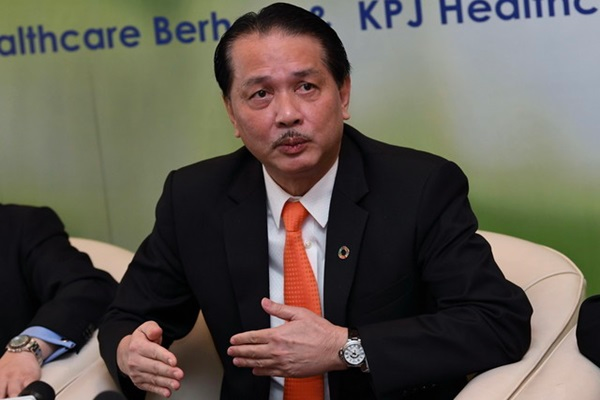Country reports first case in almost 30 years, confirmed case in Sabah

Datuk Dr Noor Hisham Abdullah – Bernama file photo
KUALA LUMPUR: The Health Ministry yesterday announced that a three-month-old male infant from Tuaran, Sabah was confirmed to have contracted polio – 27 years since the disease was eradicated from the country.
Health director-general Datuk Dr Noor Hisham Abdullah said the baby had fever followed by weakness in the limbs, and had been admitted to the intensive care unit of the hospital before being diagnosed with vaccine-derived poliovirus type 1 (VDPV1) on Friday (Dec 6).
According to him, the infant is still being treated in an isolation ward and is in stable condition, but still needs breathing aid.
“As a result of a validation test conducted by the World Health Organisation (WHO) Polio Regional Laboratory in Australia, the virus is linked to the polio virus detected in the Acute Flaccid Paralysis (AFP) case in the Philippines,” he said in a statement yesterday.
Elaborating, he said a less virulent virus excreted by the body through the faeces and in areas of inadequate sanitation, it could infect people who had no immunity to polio and would continue to spread in communities with less than 95 per cent polio immunisation.
“The more the virus spreads in the community, it undergoes genetic mutation which will become virulent, known as vaccine-derived poliovirus (VDPV) and can cause poliomyelitis.
“However, for those who have been vaccinated with the poliomyelitis vaccine, they will be protected from infection,” he said.
Meanwhile, he said, as of Dec 5, investigations into polio-infected children living in Sabah had found that 23 out of 199 (11.6 per cent), aged between two months and 15 years, had not received the polio vaccine.
“This is a very worrying situation because the spread of cVPDV can only be terminated with polio immunisation,” he said.
To ensure that the country would remain polio-free, he said the Health Ministry through the District Health Offices and health facilities should ensure that the monitoring and detection of Acute Flaccid Paralysis at all health facilities would be strengthened.
In addition, environmental monitoring in high-risk areas such such as settlements of foreign nationals from countries with polio, should be expanded, while ensuring that polio immunisation coverage would exceed 95 per cent in all localities in Malaysia at all times.
“For the state of Sabah, which is closest to the Philippines, high immunisation coverage is essential to protect the children from polio infection,” said Dr Noor Hisham.
“The public, especially the parents, are advised to ensure that children have complete polio immunisation at any nearby health facility, besides practising personal and environmental hygiene,” he added. — Bernama
